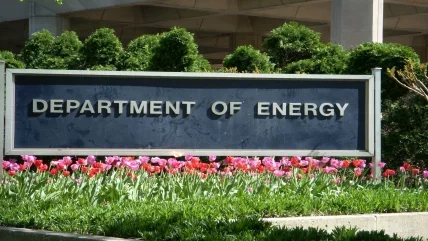
The US Department of Energy on 13 October announced $7 billion in funding to launch seven Regional Clean Hydrogen Hubs (‘H2Hubs’) across the nation and accelerate the commercial-scale deployment of low-cost, clean hydrogen.
The decision is a key pillar of ‘Bidenomics’ and is crucial to meeting the president’s climate and energy security goals. The announcement came during the third phase of the ‘Investing in America tour’, during which president Biden and secretary Granholm will travel to Pennsylvania to announce this unprecedented investment in American manufacturing and jobs.
Funded by President Biden’s Bipartisan Infrastructure Law, the seven H2Hubs are intended to kickstart a national network of clean hydrogen producers, consumers, and connective infrastructure while supporting the production, storage, delivery, and end-use of clean hydrogen. The H2Hubs are expected to collectively produce three million metric tons of hydrogen annually, reaching nearly a third of the 2030 US production target and lowering emissions from hard-to-decarbonise industrial sectors that represent 30 % of total US carbon emissions. Together, they will also reduce 25 million metric tons of carbon dioxide emissions from end-uses each year and create and retain tens of thousands of jobs across the country while supporting healthier communities.
The announcement is one of the largest investments in clean manufacturing and jobs in history. This Federal investment will be matched by recipients to create a total funding of nearly $50 billion.
Clean hydrogen’s unique characteristics will allow the H2Hubs to substantially reduce harmful emissions from some of the most energy-intensive sectors of the economy, such as chemical and industrial processes and heavy-duty transportation. It could also be used as a form of long-duration energy storage to support the expansion of renewable power.
Selected projects for negotiation include:
- Appalachian Hydrogen Hub (Appalachian Regional Clean Hydrogen Hub (ARCH2); West Virginia, Ohio, Pennsylvania), up to $925 million. This will leverage the region’s ample access to low-cost natural gas to produce low-cost clean hydrogen and permanently store the associated carbon emissions.
- California Hydrogen Hub (Alliance for Renewable Clean Hydrogen Energy Systems (ARCHES); California), up to $1.2 bn. Will leverage the state’s leadership in clean energy technology to produce hydrogen exclusively from renewable energy and biomass. It will provide a blueprint for decarbonising public transportation, heavy duty trucking, and port operations.
- Gulf Coast Hydrogen Hub (HyVelocity H2Hub; Texas), up to $1.2 bn. Will be centred in the Houston region, the traditional energy capital of the United States. It will help kickstart the clean hydrogen economy with its plans for large-scale hydrogen production using both natural gas with carbon capture and renewables-powered electrolysis, leveraging the Gulf Coast region’s abundant renewable energy and natural gas supply to drive down the cost of hydrogen
- Heartland Hydrogen Hub (Minnesota, North Dakota, South Dakota), up to $925 million. Will leverage the region’s abundant energy resources to help decarbonise the agricultural sector’s production of fertiliser, decrease the regional cost of clean hydrogen, and advance the use of clean hydrogen in electric generation and for cold climate space heating. It also plans to offer unique opportunities of equity ownership to tribal communities through an equity partnership and to local farmers and farmer co-ops through a private sector partnership.
- Mid-Atlantic Hydrogen Hub (Mid-Atlantic Clean Hydrogen Hub (MACH2); Pennsylvania, Delaware, New Jersey), up to $750 m. Will help unlock hydrogen-driven decarboniaation in the Mid-Atlantic region while repurposing historic oil infrastructure and using existing rights-of-way. It plans to develop renewable hydrogen production facilities from renewable and nuclear electricity using both established and innovative electrolyser technologies.
- Midwest Hydrogen Hub (Midwest Alliance for Clean Hydrogen (MachH2); Illinois, Indiana, Michigan), up to $1 bn. Located in a key industrial and transportation corridor, the Hub will enable decarbonisation through strategic hydrogen uses including steel and glass production, power generation, refining, heavy-duty transportation, and sustainable aviation fuel. This Hub plans to produce hydrogen by leveraging diverse and abundant energy sources, including renewable energy, natural gas, and low-cost nuclear energy.
- Pacific Northwest Hydrogen Hub (PNW H2; Washington, Oregon, Montana), up to $1 billion. Will leverage the region’s abundant renewable resources to produce clean hydrogen exclusively via electrolysis. Its anticipated widescale use of electrolysers will play a key role in driving down electrolyser costs.
Image courtesy of US Department of Energy’s Office of Clean Energy Demonstrations






